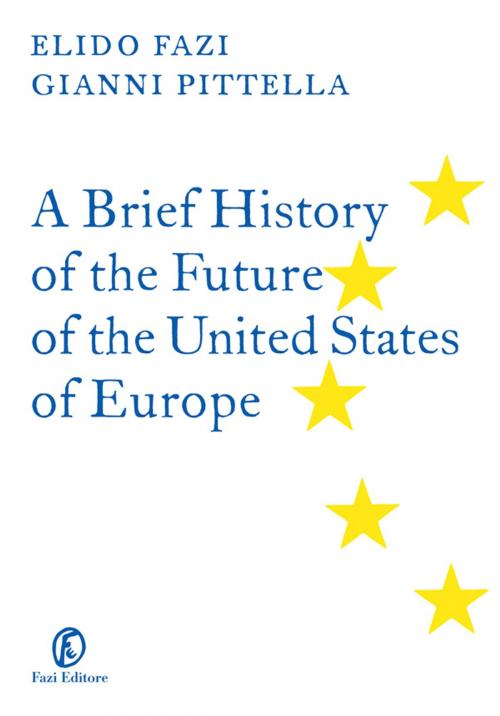A Brief History of the Future of the United States of Europe
Nonfiction, Social & Cultural Studies, Political Science, Politics, Economic Policy, International, International Relations| Author: | Gianni Pittella, Elido Fazi | ISBN: | 9788864117492 |
| Publisher: | Fazi Editore | Publication: | March 12, 2013 |
| Imprint: | Fazi Editore | Language: | Italian |
| Author: | Gianni Pittella, Elido Fazi |
| ISBN: | 9788864117492 |
| Publisher: | Fazi Editore |
| Publication: | March 12, 2013 |
| Imprint: | Fazi Editore |
| Language: | Italian |
2012 will be remembered as a turning point in the history of European integration. Somewhat reluctantly, after flirting for years with dangerous and probably unviable alternatives, Angela Merkel’s Germany seems to have made peace with the idea that that the only way to save the euro is to create a genuine European “political union”: the United States of Europe. Following Hollande’s election in France, the grip of neoliberalism and austerity on the continent is slowly but unrelentingly easing. A fiscal and monetary union cannot survive if it is not backed by a full-blown federal state capable of (partly) assuming the debts of individual nation states; of issuing eurobonds through a federal Treasury; of spearheading a radical reform of the international monetary system; and much more. Europe cannot surrender itself, and the world, to the overwhelming power of global finance: on the contrary, it should champion an international agreement to put an end to unregulated capital and financial flows. Tightly regulating financial traffic is nowadays as crucial as controlling air traffic. Moreover, Europe needs to rapidly develop an ambitious, continent-wide employment-enhancing strategy. The neoliberal policies thus pursued – based on the principle that first comes austerity, then growth – have proven to be a colossal failure. We have to go back to Keynes, who flipped the theory over: investments create savings, income and employment.
2012 will be remembered as a turning point in the history of European integration. Somewhat reluctantly, after flirting for years with dangerous and probably unviable alternatives, Angela Merkel’s Germany seems to have made peace with the idea that that the only way to save the euro is to create a genuine European “political union”: the United States of Europe. Following Hollande’s election in France, the grip of neoliberalism and austerity on the continent is slowly but unrelentingly easing. A fiscal and monetary union cannot survive if it is not backed by a full-blown federal state capable of (partly) assuming the debts of individual nation states; of issuing eurobonds through a federal Treasury; of spearheading a radical reform of the international monetary system; and much more. Europe cannot surrender itself, and the world, to the overwhelming power of global finance: on the contrary, it should champion an international agreement to put an end to unregulated capital and financial flows. Tightly regulating financial traffic is nowadays as crucial as controlling air traffic. Moreover, Europe needs to rapidly develop an ambitious, continent-wide employment-enhancing strategy. The neoliberal policies thus pursued – based on the principle that first comes austerity, then growth – have proven to be a colossal failure. We have to go back to Keynes, who flipped the theory over: investments create savings, income and employment.















